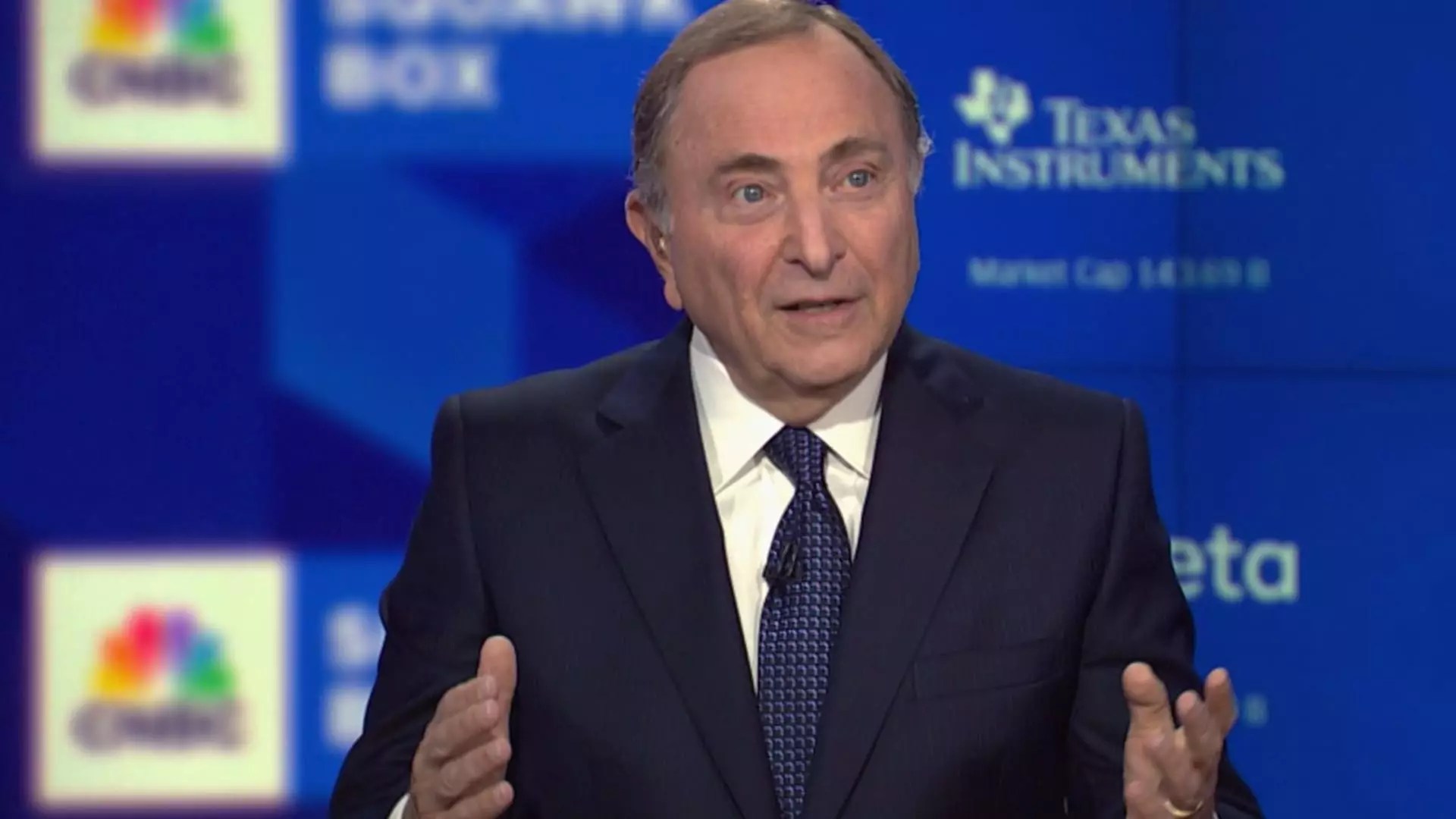The decision by the NHL to re-engage with the Winter Olympics in Milan 2026 marks a significant shift in the league’s strategic priorities. Commissioner Gary Bettman frames this move as an effort to elevate the league’s visibility on a global stage, capitalizing on the Olympics’ immense viewership. However, beneath this surface lies a deeper tension—a balancing act between tradition, commercial interests, and potential league stability. The reintegration of NHL players into the Olympic fold is both a calculated gamble and a risky reassertion of national pride, which could lead to unintended consequences that go far beyond the ice rink.
While the league views the Olympics as a platform to showcase its talent worldwide, this decision risks undermining the stability of the NHL season itself. Interrupting nearly two weeks of regular play to accommodate the Olympics was once a contentious point, yet now it appears to be accepted as a necessary evil. Such an approach sets a concerning precedent: that a major North American sports league can prioritize international spectacle over season integrity. This not only disrupts league momentum but also shifts focus towards short-term visibility rather than sustainable growth.
Implications for Player Welfare and League Control
Bettman’s acknowledgment that “players were treated like invited guests” during previous Olympic appearances reveals a broader issue: the league’s diminished control over its players during international competition. Historically, the NHL’s participation was marred by logistical chaos and limited promotional rights, which ultimately rendered Olympic involvement more of a distraction than an advantage. While recent agreements aim to upgrade living conditions and uphold players’ patriotic motivations, the core issue persists—does the league truly benefit from surrendering control of its assets?
The momentary benefits—national pride, global exposure—do not outweigh the potential costs. Players often participate motivated by personal patriotism, but the league’s willingness to prioritize this motif at the expense of its operational stability signals a concerning shift. When a league begins to compromise on its primary business model for fleeting international prestige, it risks devaluing its product and alienating a core fan base that values a stable, predictable season.
Commercial Interests vs. League Identity
The re-engagement with the Olympics is driven by broader commercial considerations, notably the partnership with broadcasters like NBC, which owns the Olympic rights through 2036. This financial alliance underscores a troubling reality: that the league’s decisions are increasingly dictated by media and corporate interests rather than the sport’s integrity. It raises an uncomfortable question—are hockey’s best players being used as pawns to bolster television ratings rather than celebrated for their excellence on the ice?
Furthermore, Bettman’s assertion that “it should be worth it” is a dangerously optimistic viewpoint. At what cost does this visibility come? The league’s focus on embracing the international stage might dilute its brand domestically, where stability and exclusivity matter more to its core audience. The risk is that future seasons could become more fragmented, with the league regularly accommodating international tournaments at the expense of a coherent, fan-friendly schedule.
Long-Term Risks for the League’s Innovation and Identity
The NHL’s flirtation with global spectacle could inadvertently lead to a dilution of its unique identity. Hockey has historically been rooted in North American culture, with a sense of exclusivity and tradition that cannot be easily transplanted to international stages. By continually bending to the demands of international broadcasters and the IOC, the league risks losing sight of what makes it distinctive—its community ties, regional loyalties, and the grassroots development that feeds its talent pipeline.
Moreover, Bettman’s reluctance to promise participation in the 2030 Games highlights an underlying nervousness—an awareness that this strategy might backfire. If the league becomes overly dependent on Olympic exposure, it may find itself vulnerable to global shifts, political disagreements, or even athlete participation disputes, which can threaten the league’s long-term stability and its ability to control its destiny.
While the NHL’s return to the Olympics appears to be a calculated step aimed at elevating its profile, the underlying risks are profound. The league’s willingness to prioritize fleeting international glory over the stability of its seasons and the integrity of its brand raises serious questions about its future — and whether this move is a sign of misguided ambition or a dangerous trend that could undermine the league’s foundation.

